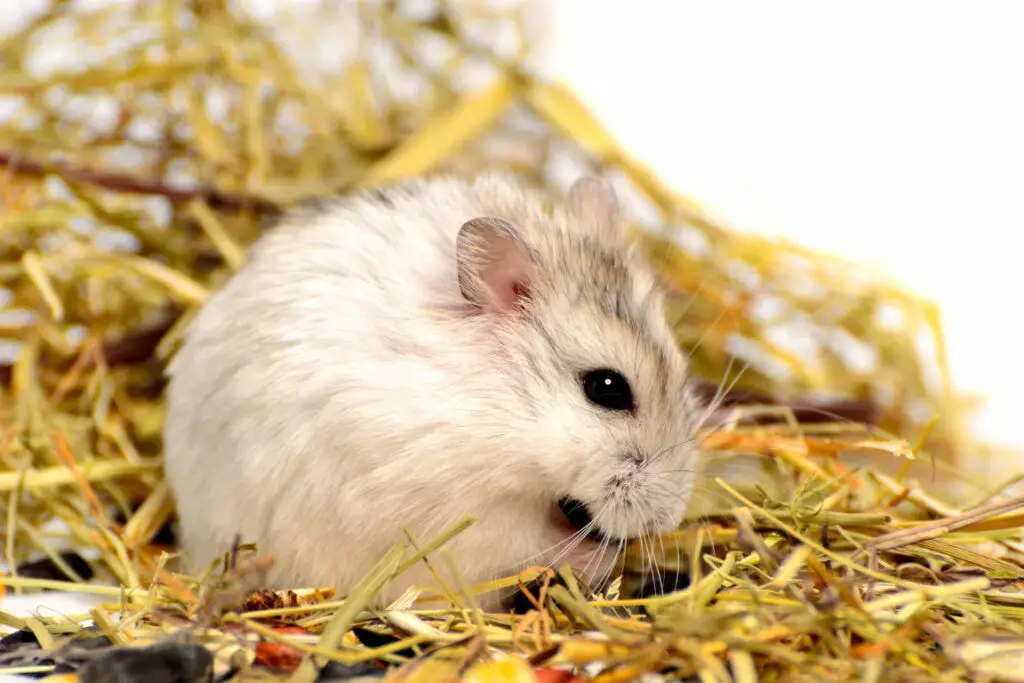Hamsters are a popular and adorable pet that many people love to take care of. As a veterinarian, I often get asked whether or not hamsters can eat cheese.
It is a valid question since hamsters are known to enjoy a variety of foods, including fruits and vegetables. In this blog post, we will explore the topic of whether hamsters can eat cheese and everything you need to know about feeding cheese to your furry friend.

Is Cheese Good for Hamsters?
Cheese can be a nutritious source of protein, calcium, and fat for hamsters. However, it is essential to keep in mind that hamsters are omnivores with a diet that is high in complex carbohydrates and low in fat. Therefore, cheese should only be fed to hamsters in moderation.
Nutrients Contained in Cheese
Cheese is a dairy product that contains essential nutrients like protein, calcium, and fat. Protein is essential for muscle growth and repair, while calcium is necessary for the development of strong bones and teeth. Fat is also important for providing energy and maintaining a healthy weight.
Possible Health Benefits for Hamsters
Cheese may provide several health benefits for hamsters when fed in moderation. For instance, it can help maintain a healthy weight and promote healthy bones and teeth. Additionally, cheese is an excellent source of protein, which can help with muscle growth and repair.
Do Hamsters Like Cheese?
Hamsters are known to enjoy a variety of foods and can develop a preference for cheese. However, it is essential to keep in mind that hamsters have a natural diet that is different from what humans eat.
Hamsters’ Natural Diet
In the wild, hamsters eat a diet that is high in complex carbohydrates, protein, and vegetables. Therefore, it is crucial to provide them with a diet that is similar to their natural diet.
Reaction to Cheese
Some hamsters may react negatively to cheese due to lactose intolerance. Lactose is a sugar found in dairy products that many hamsters cannot digest. Therefore, it is important to monitor your hamster’s reaction after feeding them cheese.
Precautions While Feeding Cheese to Hamsters
It is essential to take precautions while feeding cheese to hamsters to avoid any potential health risks.
Potential Health Risks
Feeding hamsters too much cheese can lead to obesity, digestive problems, and other health issues. Therefore, it is important to feed cheese to hamsters in moderation.
Cheese Types to Avoid
Some types of cheese, like blue cheese and Roquefort, contain molds that can be harmful to hamsters. Additionally, cheese that is high in salt or spices should be avoided.
If you feed cheese to your hamster, it has to be low in fat and low in salt and should not contain any mold.
Serving Sizes and Frequency
Cheese should only be fed to hamsters in small amounts, no more than a couple of times a week. A serving size of cheese should be no more than a pea-sized amount. It is also crucial to provide fresh water at all times to ensure that your hamster stays hydrated.
Alternatives to Cheese for Hamsters
There are many healthy and safe alternatives to cheese that hamsters can enjoy.
Healthy Foods for Hamsters
Fruits and vegetables like apples, carrots, and broccoli can be a nutritious addition to a hamster’s diet. Additionally, hamster food pellets that provide a balance of nutrients can be a great option.
Specific Foods for Hamsters
Hamsters can also enjoy other foods like mealworms, crickets, and boiled eggs. These foods are high in protein and can provide a variety of nutrients.
Conclusion
Overall, cheese can be a nutritious and tasty addition to a hamster’s diet when fed in moderation.
However, it is important to take precautions while feeding cheese to hamsters to avoid any potential health risks.
Additionally, there are many healthy and safe alternatives to cheese that hamsters can enjoy. As always, consult with your veterinarian before making any changes to your hamster’s diet to ensure their health and well-being.
- How Long Do American Eskimo Dogs Live? Important Factors and Care Tips - September 29, 2023
- Do American Bulldogs Need Grooming? Essential Tips and Care Guidelines - September 29, 2023
- Do Bengal Cats Enjoy Playing? Essential Tips for Keeping Them Active - September 29, 2023